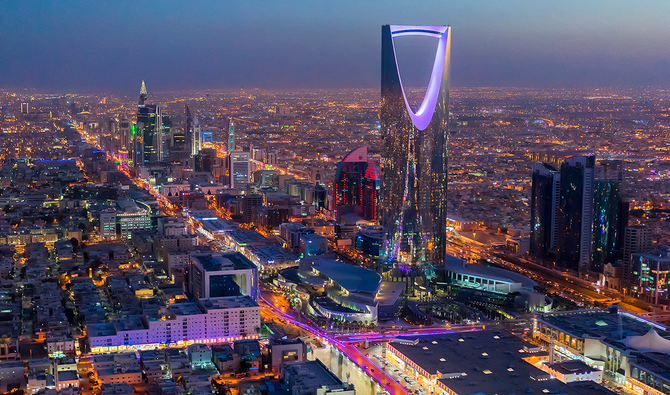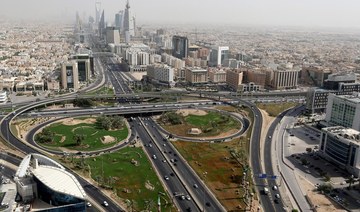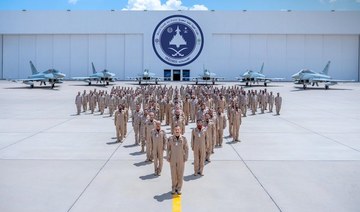RIYADH: The coronavirus disease (COVID-19) pandemic has affected all spheres of life. Global air travel screeched to halt when the number of infections spiked around the world. Despite the resumption of flights on a limited scale and on certain routes, air travel has largely been suspended.
The situation is worrisome for those who are living abroad and are unable to travel to their home countries. Many are concerned about the health and safety of their loved ones in places where the number of infections is on the rise.
Faiz Al-Najdi, a Pakistani expatriate working as a project manager with a consultant associated with the Royal Commission at Yanbu, told Arab News: “At first I was a bit skeptical about the seriousness of this pandemic but when some of my acquaintances in Riyadh and my hometown Karachi died of COVID-19 I began to get worried.”
He said it is very painful to hear bad news from home when you live abroad. Due to the suspension of air operations, “I felt helpless,” Al-Najdi said.
He praised the Kingdom for handling the pandemic very effectively. “The Saudi government's response was very swift. The measures it took helped curb the spread of the virus,” he said.
Ghaffar Khan, another Pakistani expatriate working here, said: “I was concerned about my family in Pakistan as the number of patients was increasing. But all thanks to Almighty, my family is safe in Pakistan.”
“I am very satisfied by the Saudi authorities’ handling of the situation in the Kingdom,” he said.
The number of cases in India, the world’s second-most-populous country, has reached a once-unthinkable threshold: 1.86 million confirmed cases — with over 50,000 cases recorded per day — and 38,938 deaths, joining the US and Brazil in a club no country wants to enter.
The situation has caused panic among Indian expatriates living in the Kingdom and has become of the source of concern for Indian businessmen, who are worried about staff members stranded in India, raw materials supply, and family and friends.
Speaking to Arab News on Tuesday, Abdulla Sheikh, general manager at Al-Kharj Union Foundry, said: “As a foundry that is dependent on Indian knowhow and Indian staff, we are extremely concerned with the COVID-19 situation in the country.”
“We have key staff stranded in India since March, who are unable to return after their visits. As a result, our production capacity is down by almost 20 percent,” he said.
“India is also the prime provider of raw materials used in our processes,” Sheikh explained.
“Due to the pandemic, our supply chain has been disrupted, leading to delays and quality control issues,” he said. “We are thankful for the immediate and correct measures taken by the Saudi government to help the economy and hope that we see a concrete plan by the Indian government to get back things on track,” he added.
Shahana Parveen, a teacher at New Middle East International School, told Arab News: “We are deeply concerned about the rising cases of COVID-19 infections in India. We are worried about the well-being of our parents and family members.”
She added: “I wish that the Indian government would learn from the experience of Saudi Arabia and other Gulf countries and resort to more scientific methods in handling this pandemic.”
Akhtarul Islam Siddiqui, an Indian expatriate in Riyadh, said: “The situation in India is deteriorating, and as an Indian living in Saudi Arabia, I feel safer and more secure than my two daughters who are currently stranded in India.”
“The Indian government has not taken adequate steps to monitor and stop the spread of COVID-19,” he said, adding: “I request that all Indians present in Saudi Arabia who are desperate for flights to resume to India instead remain in the Kingdom as we are safer here than in our home country.”
Rais Ahmed Ali Motlekar, an Indian working at American multinational corporation Cognizant as client partner and director, said: “For many of my friends and colleagues, Eid holidays are the best time to be together with relatives in India, but this year has been very different as people are unable to travel. Repatriation flights operated by the Indian Embassy are an option, but many people feel safer here and want to remain in Saudi Arabia as the situation in India is moving from bad to worse.”
While he described his condition in Saudi Arabia as comparatively “much better and safer,” he expressed concern for his elderly parents in India.
Mohammed Nasim Akhtar, an Indian business development manager working in Riyadh for three decades, told Arab News: “We are worried about the increasing number of COVID-19 cases in our homeland. We pray for the well-being of all.”

























